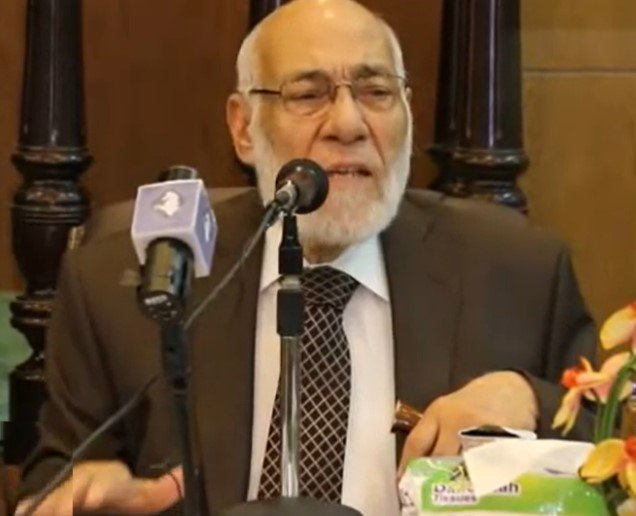Egyptian geologist and Islamic scholar Zaghloul El-Naggar passed away on November 9, 2025, in Amman, Jordan, at the age of 92 after a long illness. Known for blending modern science with Quranic teachings, he inspired millions through his books, lectures, and TV shows, leaving a lasting impact on how Muslims view science and faith.
Early Life and Rise in Geology
Zaghloul El-Naggar was born on November 17, 1933, in the village of Mashal in Egypt’s Gharbia Governorate. From a young age, he showed a strong interest in the natural world, which led him to study geology at Cairo University.
He graduated with honors in 1955 and won the Mustafa Baraka Award for his work in earth sciences. El-Naggar then pursued advanced studies abroad, earning his PhD from the University of Wales in 1963 with a thesis on the geology of Egypt’s Nile Valley region.
This education set the foundation for a career that combined scientific research with teaching. By 1972, he had become a full professor, marking his quick rise in academic circles.

His early work focused on practical geology, including studies on oil exploration and paleontology, which gained him respect in international scientific communities.
Global Academic Career and Roles
El-Naggar taught and researched in several countries, building a reputation as a skilled geologist. He held positions at universities in Egypt, the United Kingdom, Saudi Arabia, Qatar, Yemen, Jordan, and the United States.
He chaired the geology department at Qatar University and taught at King Fahd University of Petroleum and Minerals in Saudi Arabia. Later, he served as a visiting professor at the University of California, Los Angeles, and directed Al-Ahqaf University in Yemen.
In Jordan, he joined the World Islamic Sciences and Education University, where he continued his work until his later years. His roles often involved leading research on earth sciences, with a focus on how geological findings relate to broader human knowledge.
El-Naggar also became a fellow of the Islamic Academy of Sciences, where he contributed to studies that linked scientific discoveries with Islamic principles.
Throughout his career, he published nearly 200 academic articles and studies, covering topics from stratigraphy to environmental geology.
Pioneering Work on Science and Quran
El-Naggar gained widespread fame for his efforts to show harmony between modern science and the Quran. He argued that the holy book contains scientific facts revealed centuries before their discovery by humans.
He authored dozens of books on this topic, often called the “scientific miracles” of the Quran and Sunnah. His writings explored how Quranic verses describe natural events like embryology, astronomy, and geology.
El-Naggar hosted the popular TV program Ayat Bayyinat, or Clear Verses, which aired on Arab channels and reached millions. In these shows, he explained complex science in simple terms, tying it to Islamic teachings.
He served as chairman of the Committee of Scientific Notions in the Quran under the Supreme Council of Islamic Affairs in Cairo. This role allowed him to organize conferences and promote his ideas globally.
While his approach inspired many, it also drew criticism from some scientists who questioned mixing faith with empirical research. Still, his work sparked debates that encouraged more Muslims to study science.
Here is a timeline of key milestones in his contributions:
| Year | Milestone |
|---|---|
| 1963 | Earned PhD and began blending geology with Islamic studies |
| 1980s | Started writing books on Quranic science miracles |
| 1990s | Launched TV program Ayat Bayyinat |
| 2000s | Chaired committee on scientific notions in Quran |
| 2010s | Continued lectures and publications into his 80s |
Honors and Public Influence
El-Naggar received multiple awards for his efforts to promote science within an Islamic framework. He was honored by organizations in the Arab world for boosting scientific literacy among Muslims.
His lectures drew large crowds, and he spoke at events across the Middle East and beyond. Many young people credit him with renewing their interest in both science and religion.
In recent years, even as health issues slowed him down, El-Naggar remained active on social media, sharing insights on current events like climate change through a Quranic lens.
His influence extended to education reforms, where he advocated for curricula that integrate faith and science. This helped shape how some Islamic schools teach subjects like biology and physics.
- Notable honors include fellowship in the Islamic Academy of Sciences.
- Recognition from the Arab Development Institute for his research.
- Awards for promoting dialogue between science and religion.
Legacy in Islamic Thought
El-Naggar’s work has left a deep mark on contemporary Islamic thought. He encouraged Muslims to see science as a way to appreciate divine creation, rather than a challenge to faith.
His books and programs continue to be used in mosques, schools, and online platforms. Scholars today build on his ideas, exploring new fields like quantum physics in relation to the Quran.
Critics note that his interpretations sometimes stretched scientific facts, but supporters say he opened doors for faith-based science education. In a time of rapid technological change, his message of harmony remains relevant.
As global discussions on religion and science evolve, El-Naggar’s approach offers a model for bridging divides. His passing comes amid growing interest in Islamic perspectives on issues like artificial intelligence and space exploration.
Final Days and Funeral Details
El-Naggar spent his last years in Jordan, where he continued teaching and writing. He battled illness for some time before his death on November 9, 2025.
His family announced the passing on social media, stating he would be buried at Umm Al-Qutain Cemetery in Amman after prayers at Abu Aisha Mosque.
Tributes poured in from around the world, with many calling him a pioneer who made science accessible to everyday Muslims. His death marks the end of an era for Islamic scholarship on science.
What do you think about El-Naggar’s impact on science and faith? Share your thoughts in the comments and pass this article along to friends who might find it interesting.
